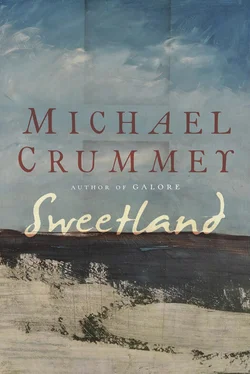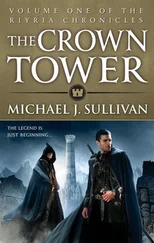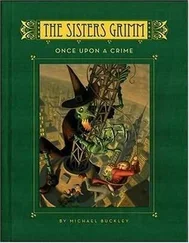He turned back to the cove, to the white church on the opposite arm, the fenced square of the graveyard on the hillside above the houses. There were a handful of youngsters playing road hockey on the government wharf on Church Side, which was the only bit of flat ground they had access to. Pilgrim’s dog bounding back and forth with the players, sent into the harbour after the ball when a wayward shot put it over the side. Sweetland counted seven or eight kids, just about the entire school-age population, save Jesse who had no aptitude for sports. Sweetland glanced back out to sea, the sun low on the horizon, and he waited until it touched down on the ocean before starting in.
He caught a blur of movement up off the path that he stopped to watch through the bushes. Loveless’s dog on the loose again. Some kind of miniature poodle cross Loveless found listed in the Buy & Sell after Sara died. He’d nagged Sweetland into making the trip across to Hermitage, carried the dog back in the pocket of his coat. Full size now and seven pounds soaking wet. Nothing but skin and grief.
Sweetland called up to the dog in the bushes and he whistled softly, but the animal ignored him, disappearing in the darkening evening. Loveless christened the dog Smut, for the coal black coat on it, though it didn’t answer to its name or to anything else, went its own wild way when it wasn’t tied to Loveless by a string. Out in the woods all night sometimes, following its nose through the tuckamore after partridge and grouse and rabbit. Showing up at Loveless’s door in the morning, filthy and bedraggled and famished. Sweetland expected the dog to disappear altogether someday, taken off by a fox or an eagle, or by coyotes if they ever made it out as far as the island.
He passed Queenie Coffin at her window on his way along, blowing smoke into the open air. She called him over and he leaned against the window frame as she finished her cigarette. She was in her quilted dressing gown, her hair done up in curlers, the old ones he remembered from his mother, held in place with bobby pins. Lipstick on the filter of her cigarette, a book sitting open in her lap. It was rare to see Queenie without a book in arm’s reach. She was a voracious reader of paint-by-number romances, of murder mysteries so predictable she could have written the endings herself fifty pages in. It was just a way to kill time, she said, to pass the afternoons, the television on with the sound on mute.
“Cool night,” she said.
“She’s brisk all right. See you planted your garden the week.”
“Yes, don’t be trampling them all,” she said.
“They’ll likely die of the cold if they comes up anyway, maid.”
Queenie laughed and coughed wetly into her fist. A voice called from upstairs and she lifted her head to answer it. “I’m just talking to my boyfriend,” she shouted.
Sweetland could hear the muffled sound of the television up there.
“Hayward says you wasn’t at the town meeting.”
“I was putting in the spuds. I’ll set aside a barrel for you the fall.”
She waved the hand holding her cigarette. “I won’t be here the fall.”
“You been saying that twenty year or more, Queenie.”
She was about to answer him but started coughing in a long, vicious round. It sounded to Sweetland like all her insides were sodden. “Time to give these up,” she said when she caught her breath. She took a drag and leaned toward the open air to exhale.
Sweetland tried to remember the last time he’d seen Queenie outside that house. When her oldest children were still youngsters, he thought, before they had the indoor plumbing installed—1969 or ’70 that was, sometime after the moon landing. Queenie flipping through the grainy pictures in a Life magazine, waving it at her husband. They can put a man on the moon, she told him, we can bloody well have a flush toilet. Hayward argued it was all a put-on, that the images were fakes taken in some Hollywood backlot. Half the people in Chance Cove thought as much. But Queenie got her toilet.
She hadn’t crossed the threshold of the house in all the years since. She stood just inside the open door or sat at the window, calling people over for a chat while she smoked. She’d taken in one of the lifeboat survivors when Sweetland towed them in, washed and fed the man and gave him a bed the night they stayed in the cove, but she wouldn’t walk down to see him ferried out to the Coast Guard vessel when they left. Three of her children married at the church on the point and she had waited in the kitchen in her best dress, the wedding party walking up to have their photos taken with her in the parlour. A public health nurse came out on the ferry twice a year to have a listen to her heart, to warn her off the cigarettes. Everyone who went off the island for business or to visit family brought back two or three Harlequins to add to her library.
“How’s your book?” Sweetland asked her.
She lifted her chin like she was pointing to something across the room and sighed. “I wish she’d stop sending these things to me, it’s nothing only an aggravation.”
Her daughter was trying to rehabilitate her lowbrow taste in reading material with what Queenie called “serious” books — literary novels, prize-winners, Oprah’s picks. Sandra sent them down from Edmonton with encouraging notes scribbled inside the covers. Queenie never cracked a spine, but for the few written by Newfoundlanders or about Newfoundland. She took those on as a kind of patriotic duty, though it was a torture to get through them. They were every one depressing, she said. Or nothing happened. Or there was no point to the story. Half the books supposedly set in Newfoundland were nowhere Queenie recognized and she felt insulted by their claim on her life. They all sounds like they was written by townies, she liked to say.
She turned the open book face down on her lap. “You heard Hayward signed on to the package.”
“I been informed.”
“Leaves you in a hard spot, I imagine.”
“I still got Loveless,” Sweetland said, and they both had a laugh over that. He leaned his shoulder on the window ledge. “Never thought you’d allow Hayward to sign on, just the same.”
“It’s Sandra talked him into it,” she said. “Going to put an apartment in her downstairs for us. Can’t wait to have us up there, she says.” Queenie made the noise in her throat again, to say it was just as likely she’d set foot on the moon as in Alberta.
Sweetland didn’t give much for the possibility either. Jesse came to visit Queenie now and then and they sat through a showing of Titanic on his laptop. Or the boy would ask after her favourite book or movie or song, about when the toilet was put in or where her children were living now and what they did for work. Queenie had answered the same questions ten thousand times but she had endless patience for the boy. His monotonous interrogation one more tiny room she’d chosen to close herself inside.
“I was born upstairs here,” she said. “Five youngsters I had, in the same room I was born in. Hayward can sign whatever he likes,” she said and she stubbed her cigarette in an ashtray beside the chair. “I’ll be leaving this house in a box.”
He was up before light, at his table with tea and the laptop, checking the marine forecast. CBC radio nattering in the background, a plant closing in Burin, the fisheries minister pledging retraining and make-work projects for the people affected.
He should just leave the goddamn radio off, Sweetland thought, enjoy the peace awhile. He headed out into the chill, walked down toward the dock through the stillness, until Pilgrim’s dog sent up a racket to mark his passing.
“Shut up, Diesel,” he said. The dog strained at her chain and carried on barking until Sweetland reached the waterline. There was a single street light on the government wharf, half a dozen boats moored alongside. Sweetland turned left, away from the wharf, and walked out the arm toward his fishing stage. It was a tidy two-storey building, the second floor a twine loft where they’d knit their cod traps once upon a time. No one knew how old the building was, but Sweetland had seen it standing over the landwash in a picture of the cove from a hundred years ago. It hadn’t been used to clean or store salt cod in a generation, but he kept the building in pristine condition, the roof patched and tarred spring and fall, the outside walls ochred red. Even when he worked at the lighthouse he kept it up, scraped and puttied the windows, replaced the shores. Your little museum, Clara called it.
Читать дальше












